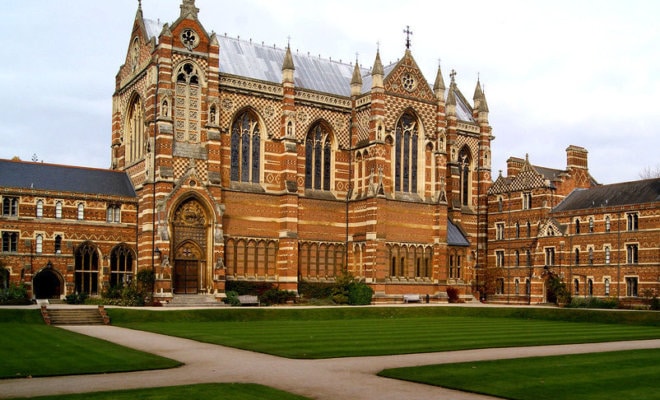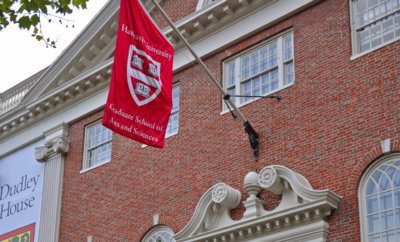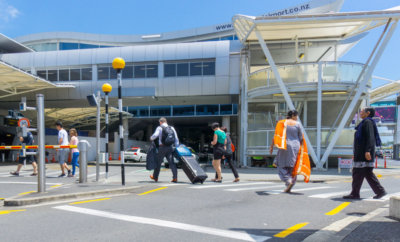Education
Oxford University Draws Flak as Admissions Data Reveals Lack of Diversity

Oxford University
Photo: Flickr
The share of black minority ethnic students in Oxford admissions rose to 17.9 percent in 2017, from 13.9 percent in 2013, according to the university statistics.
The Oxford University has come under fire for the lack of diversity among its students after it published the latest statistics of student applications and admissions of 2017. The data, released on May 23, showed that the share of black minority ethnic (BME) students in admissions came up to 17.9 percent last year, from 13.9 percent in 2013. Only 1.9 percent of the 3,200 students admitted to the 850-year-old university were black, marking an increase of less than a percentage point from 2013, which saw 1.1 percent of black British undergraduates at Oxford.
The black minority ethnic (BME) is a subset of students, which includes persons belonging to Black (including African, Caribbean and other Black background), Asian (including Bangladeshi, Indian, Pakistani, Chinese and other Asian background), Mixed Heritage (including White and Asian, White and Black African, White and Black Caribbean and other Mixed background), Arab or any other ethnicity.
The proportion of Asian students living in the United Kingdom admitted to Oxford rose from 6.7 percent in 2013 to 8.3 percent in 2017. When it comes to Bangladeshi or Pakistani students, the proportion of UK-domiciled students admitted to Oxford went up from 0.6 percent in 2013 to 1.7 percent in 2017.
The BME students are more likely to apply for competitive courses, according to the Oxford Admission Report. Asian students in particular apply for Medicine, Law, Economics and Management, and Mathematics courses.
A breakdown of the undergraduate admissions to the 29 individual colleges that form Oxford University shows that eight of the most prestigious colleges have failed to admit a single black Briton in one or more years from 2015 to 2017. The student newspaper at Oxford, Cherwell, reported on May 23 that the university admitted more students in 2017 from a single London private school — 49 — than black undergraduates from the rest of Britain, which numbered at 48.
The student newspaper pointed out that 17 of the top 20 schools for Oxford admissions in 2017 are fee-paying, while the other three are prestigious grammar schools. State-educated students tended to apply to the most oversubscribed subjects, while applicants from private schools tended to apply to less sought-after courses such as classics or modern languages, it added.
Oxford reflects the inequalities that exist in the UK society, Louise Richardson, the university’s vice chancellor, said. “Oxford reflects the inequalities — socio-economic, ethnic and regional — that exist in British society. The picture that emerges is of a university which is changing: evolving fast for an institution of its age and standing, but perhaps too slowly to meet public expectations. It is a picture of progress on a great many fronts, but with work remaining to be done,” she said in the foreword to the report.
The university’s slow progress in inclusion of diversity came under stringent criticism from David Lammy, a Labour lawmaker and former education minister who has campaigned against what he has called “social apartheid” at Oxford. The latest figures show that the university is “an institution defined by entrenched privilege that is the preserve of wealthy white students from London and the Southeast,” Lammy said.
“If Oxford is serious about access, the university needs to put its money where its mouth is and introduce a university-wide foundation year, get a lot better at encouraging talented students from under-represented backgrounds to apply and use contextual data when making offers, not just when granting interviews. The underprivileged kid from a state school in Sunderland or Rochdale who gets straight As is more talented [than] their contemporary with the same grades at Eton or Harrow, and all the academic evidences shows that they far outshine their peers at university too,” Lammy was quoted as saying by the Guardian.
The university landed in a more unsavory situation following the criticism, after it retweeted a post, which had called the Labour leader “bitter,” on its official handle. The university later retracted its position and apologized, after Lammy questioned whether it was their official stance.
Hello @UniofOxford is it your official position that I am "bitter" just because I am prepared to criticise your institutional failings on access, FOI the data and publish it? This contradicts your press statements that say how determined you are to improve access. Which is right? pic.twitter.com/K9pkojAdJv
— David Lammy (@DavidLammy) May 23, 2018



